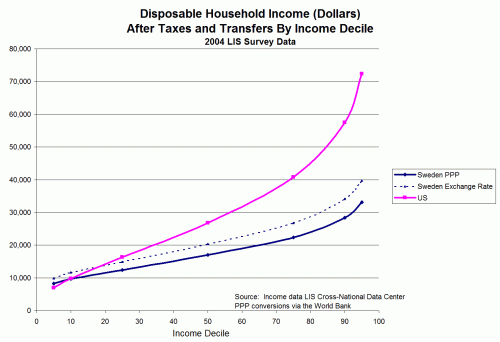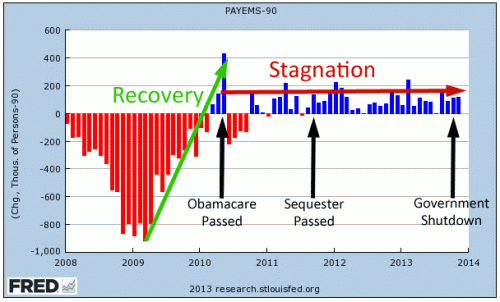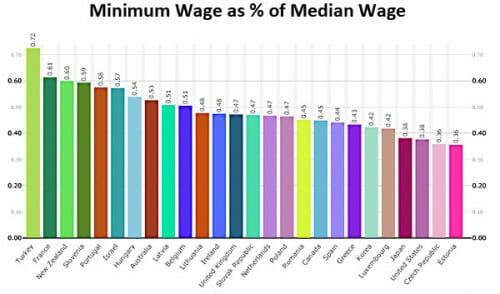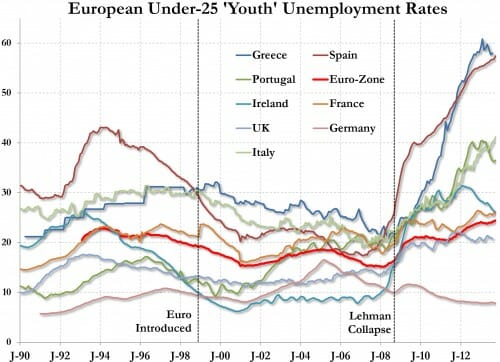When people ask me about my business, one of the things that is hard to explain is just how deep and visceral the skepticism of private enterprise can be. I constantly have people take single words I might have uttered in the immediacy of a live TV interview and try to craft straw man positions for me out of them**. Sometimes it is not even something I said, but something where some lazy journalist has poorly paraphrased my position.
Here is a great example, where a Flagstaff writer (who by the way knows me and my phone number quite well but did not bother to interview me) tries to take my opposition to the government shutdown to paint me with some sort of entitlement. She lectures me that I don't actually own the land on which I operate, as if that is somehow news to me. You can read my comments if you are interested, but the issue with the shutdown was the lawlessness of Administration officials, not any sense that I am entitled to the land any more than my lease contract allows me to be. (As an aside, she seems to be expressing a strong theory of landlord rights, that my landlord (the US Forest Service) should have the absolute right to shut me down whenever they want. Why is it that I don't think she has the same position vis a vis other tenants and landlords?)
By the way, compare her straw man to my actual position on public land, which is likely to the Left of many of my readers:
In my history of public discussions on private operation of public parks, it is no surprise that I run into a lot of skepticism about having any private role at all. But I also run into the opposite -- folks who ask (or demand) that the government sell all the parks to private buyers. So why shouldn't privatization of parks just consist of a massive land sale?
The answer has to do with profit potential. Over time, if in private hands, a piece of land will naturally migrate towards the use which can generate the highest returns. And often, for a unique piece of land, this most profitable use might not be a picnic area with a $6 entrance fee -- it might instead be something very exclusive which only a few can enjoy, like an expensive resort or a luxury home development (think: Aspen or Jackson Hole). The public has asked its government to own certain unique lands in order to control their development and the public access to them.
Public ownership of unique lands, then, tends to have the goal of allowing access to and enjoyment of a particular piece of land for all of the public, not just a few. Typically this entails a public agency owning the land and controlling the types of uses allowed on the land and the nature and style of facility development. I call these state activities controlling the "character" of the land and its use. (One could legitimately argue that private land trusts could fulfill the same role, and in fact I have personally been a supporter of and donor to private land trusts. However, I am not an expert in this field and will leave this discussion to others).
Having established a role for the government in setting the character of the lands we call "parks," we can then legitimately ask, "does this goal require that government employees actually staff the parks and clean the bathrooms?"
** Postscript: A couple of years ago I was asked to do an interview with Glen Beck on my proposal to keep open, via private operation, a number of Arizona parks slated for closure. It was the first time I ever did live TV, and a national show to boot. I had never seen his show but he had the reputation of being freaky and unpredictable, which just made me more nervous. Anyway, during the interview I said that typically an agency would contract with us for a group of parks, instead of just one, so the stars could help cover the cost of the dogs. This terminology is from a framework many business school students learn early, often called a BCG matrix (named after the Boston Consulting Group). It is a two by two matrix with market share or profitability on one axis and market growth on the other. Anyway, the profitable high revenue units within a company are stars and the unprofitable stagnant ones are called dogs (the profitable stagnant ones were cash cows and I can't actually remember what was in the fourth box). You can see this nomenclature is so established they actually put little pictures of stars and dogs in the boxes.
Anyway, it was a poor choice of wording, but the nomenclature is wired do deep in my now it just came out. The context of the entire interview was that I cared deeply about the parks and that I was offended that the legislature was going to let them close when there was an easy solution at hand. No matter. The #2 guy at Arizona State Parks took the video and make the rounds of the state park staff, highlighting my use of the word "dog" and inflaming their rank and file that I thought their parks were bad places and I was bent on destroying them, or something. Anyway, none of the Arizona Park Staff I have ever talked to has ever seen an operations manual for their parks but they have all seen the video of me saying "dogs."
Postscript #2: Don't ever think that consulting is different from any other business. When I was an McKinsey, we had piles of frameworks we used (the 7S organization framework being perhaps the most common and actually fairly useful, as its intent was to take focus away from structure alone in organizational work). Anyway, McKinsey had to have a growth-share matrix, but to try to differentiate this product a bit they had a 3x3 matrix rather than a 2x2.
Since I am somehow oddly onto a consulting tangent here, the single most useful thing I garnered from McKinsey was the pyramid principle in persuasive and analytical writing. I have talked to a lot of other ex-McKinsey folks, and almost all of them wonder why the pyramid principle is not taught in high school. I am not a believer in business books -- I am looking around my office and I don't think I see even one here. But if I had to offer one book for someone who wanted a business book, this is it.








